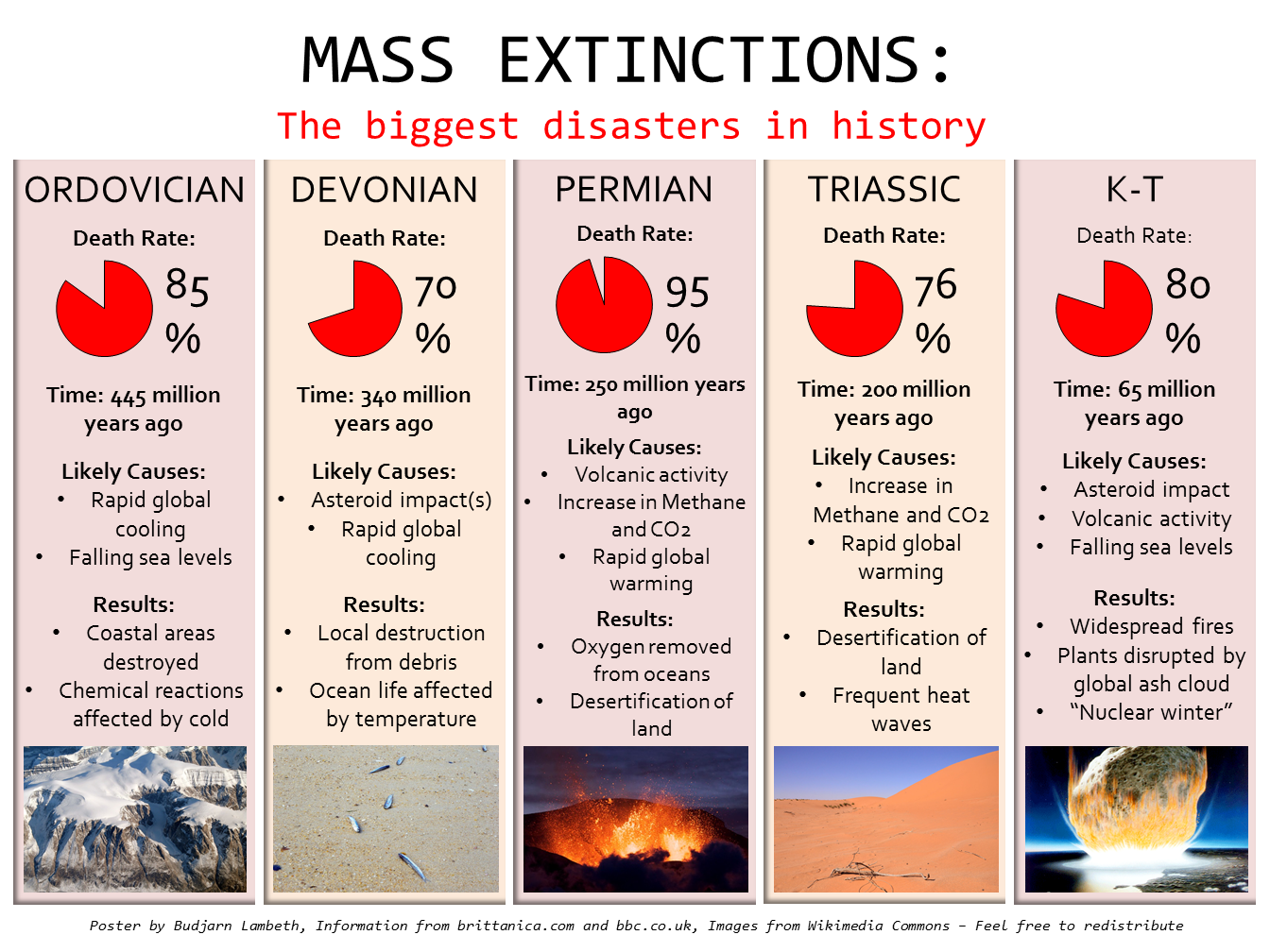Five Big Mass Extinctions Our World Had
To our knowledge, our world had 5 major big extinctions in the history. In everyone of them, our world lost 50% - 75% of its habitat. To sum up in a short way, we can put them in 5 titles.

End Ordovician - Around 440 million years ago - 86% of species lost
According to scientists, it was because of glaciation and falling sea levels. The earth was covered by a lot of amount by plants, so these plants removed carbon dioxide from air which was the reason for falling temperature for the world and killing most of the creatures in oceans as at that time most of the creatures were living in oceans.
Late Devonian - Around 370 million years ago - 75% of species lost
Estimates propose that around 75% of species were lost around 370 million years ago.Trilobites, which survived the Ordovician-Silurian extinction due to their hard exoskeletons, were nearly exterminated during this extinction. Giant land plants are thought to be responsible as their deep roots released nutrients into the oceans. The nutrient rich waters resulted in mass amounts of algal blooms which depleted the seas of oxygen and therefore, animal life.
End Permian - 250 million years ago - 96% of species lost
Known as “the great dying”, this was by far the worst extinction event ever seen; it nearly ended life on Earth. “The Great Dying” was caused by an enormous volcanic eruption that filled the air with carbon dioxide which fed different kinds of bacteria that began emitting large amounts of methane. The Earth warmed, and the oceans became acidic.
End Triassic - Around 200 million years ago - 80% of species lost
The Triassic-Jurassic extinction happened between 199 million and 214 million years ago and as in other mass extinctions, it is believed there were several phases of species loss. The blame has been placed on an asteroid impact, climate change, and flood basalt eruptions.
End Cretaceous - Around 66 million years ago - 76% of all species lost
Dinosaurs may have ruled the land during the Cretaceous period but the oceans belonged to the ammonites. But volcanic activity and climate change already placed the ammonites under stress. The asteroid impact that ended the dinosaurs’ reign provided the final blow and allowed for the evolution of mammals on land and sharks in the sea.
source: cosmos magazine - world atlas
image: Bud Charles
Congratulations @okan35! You received a personal award!
You can view your badges on your Steem Board and compare to others on the Steem Ranking
Do not miss the last post from @steemitboard:
Vote for @Steemitboard as a witness to get one more award and increased upvotes!